Hygiene Scented

Is it safe to use scented feminine hygiene products ?
This article discusses the potential risks and benefits associated with using scented feminine hygiene products. Possible risks include allergic reactions, hormonal imbalances, and environmental impact, while benefits include personal comfort, confidence, variety, and enjoyment. It is important for individuals to consider their own needs and preferences when choosing whether or not to use scented feminine hygiene products and to consult with a healthcare professional regarding any concerns or questions about specific products.

Can using certain feminine hygiene products cause infections or irritation ?
"Can Using Certain Feminine Hygiene Products Cause Infections or Irritation?": This article explores the potential risks associated with using various feminine hygiene products, including infections and irritation. It provides tips on how to prevent these risks by choosing appropriate products, practicing good hygiene, and consulting a healthcare provider if necessary. The article emphasizes the importance of using these products correctly and mindfully to maintain personal hygiene without compromising one's health.

Can poor personal hygiene lead to skin problems ?
Poor personal hygiene can lead to a variety of skin problems, including bacterial and fungal infections, irritation and inflammation, and other conditions. To prevent these issues, it's important to practice good hygiene, such as regular showering, wearing clean clothes, hand washing, moisturizing, and sun protection.

How can I teach my children about the importance of personal hygiene ?
Teaching personal hygiene to children is crucial for their development. Start with basic concepts and gradually introduce more complex ones as they grow. Emphasize hand washing, covering mouth while coughing, daily bathing, and teeth brushing. Lead by example, make hygiene fun, educate consistently, and use visual aids. Handle resistance with negotiation, incentives, and explaining consequences. Maintaining hygiene habits requires ongoing education on puberty, menstrual hygiene, etc.

Why is personal hygiene important for those who handle or prepare food ?
Personal hygiene is critical for food handlers due to its impact on health, safety, and quality assurance. Cross-contamination and allergen transfer can lead to illnesses, while cleanliness affects food presentation and flavor. Handwashing, proper grooming, and workstation cleaning are essential practices to maintain hygiene.

What role does nutrition play in maintaining personal hygiene ?
The article emphasizes the importance of nutrition in maintaining personal hygiene. It suggests consuming nutrient-rich foods, developing healthy dietary habits, and supporting the immune system through nutrition to improve overall health and hygiene.

In what ways does poor personal hygiene impact mental health ?
Poor personal hygiene can negatively affect mental health by causing decreased self-esteem, social isolation, and exacerbating symptoms of mental health disorders. It is important to maintain good hygiene habits for overall well-being.

What is the significance of regular bathing in personal hygiene ?
Bathing regularly is essential for maintaining good personal hygiene, offering benefits such as dirt and sweat removal, prevention of body odor, promotion of blood circulation, stress and anxiety reduction, and maintenance of good grooming habits.
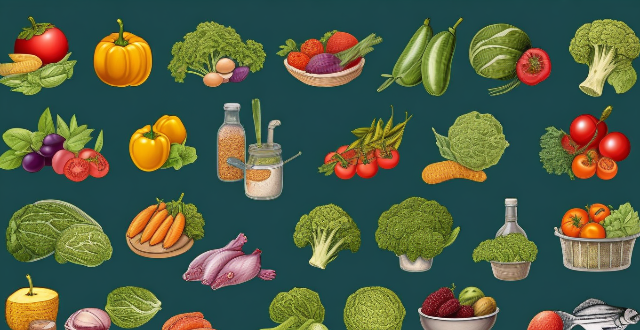
What is the significance of personal hygiene in food handling ?
Personal hygiene is crucial for food safety, public health protection, and maintaining quality in the food industry. It prevents cross-contamination, reduces disease transmission, and enhances food quality. Adherence to personal hygiene standards impacts regulatory compliance, consumer trust, and economic implications within the food industry.
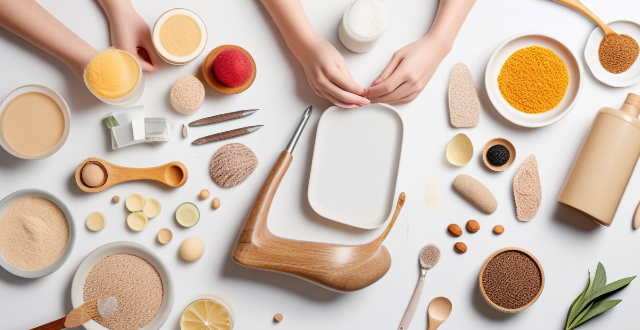
How does one's personal hygiene affect their social interactions ?
Personal hygiene is crucial for positive social interactions, boosting confidence, and maintaining good health. Good hygiene habits include regular bathing, teeth brushing, wearing clean clothes, hand washing, and taking care of skin and hair. Poor hygiene can lead to social isolation, misunderstandings, and health risks. Following simple tips can ensure that personal hygiene positively impacts social interactions.

Is there a difference between personal hygiene and cleanliness ?
Personal Hygiene and Cleanliness are often used interchangeably, but they have distinct meanings. Personal hygiene focuses on the individual's physical well-being, while cleanliness focuses on the environment's tidiness and orderliness. Both are essential for maintaining good health and preventing the spread of infections.
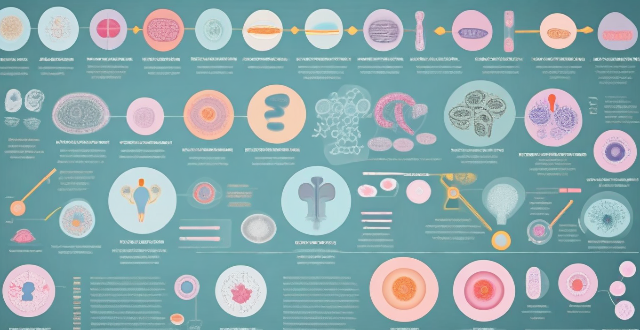
What are the risks associated with poor personal hygiene on health ?
This article discusses the risks associated with poor personal hygiene on health. It highlights various infections and illnesses that can occur due to poor hygiene practices, including skin infections, respiratory infections, gastrointestinal infections, urinary tract infections, sexually transmitted infections, and mental health issues. The article emphasizes the importance of maintaining good personal hygiene habits to prevent these health risks and promote overall well-being.

How often should I wash my hands to maintain good hygiene ?
Washing hands is an essential part of maintaining good hygiene. It helps prevent the spread of germs and diseases, especially during these times of COVID-19. Here are some tips on how often you should wash your hands: before eating or preparing food, after using the bathroom, after coughing/sneezing/blowing your nose, before touching someone else's face, and after handling dirty objects. It's important to wash your hands frequently throughout the day to maintain good hygiene and prevent the spread of germs and diseases.

What steps should be taken to maintain good hygiene during travel ?
The text provides a comprehensive guide on maintaining good hygiene during travel. It emphasizes the importance of packing essential hygiene items, keeping hands clean, practicing safe eating habits, staying clean and fresh, being mindful of surroundings, keeping living spaces clean, and following local customs. The article underscores that maintaining good hygiene is crucial to staying healthy and enjoying a pleasant travel experience.

What are the key principles of food hygiene and safety ?
Food hygiene and safety are crucial in preventing foodborne illnesses and ensuring the well-being of consumers. Key principles include personal hygiene such as washing hands thoroughly, covering cuts and sores, avoiding contaminating surfaces, and wearing appropriate clothing; food handling including keeping food at safe temperatures, cooking food thoroughly, using separate utensils, and avoiding reusing cooking oil; sanitation such as cleaning equipment regularly, sanitizing surfaces, and controlling pests; and storage such as storing food properly, refrigerating leftovers promptly, and labeling and dating products. By following these principles, you can help protect yourself and others from foodborne illnesses and enjoy safe, healthy meals.
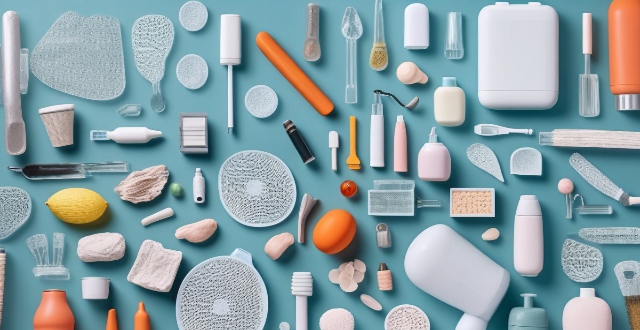
Are there any specific products or tools recommended for optimal oral hygiene ?
Optimal oral hygiene is crucial for overall health. Recommended products and tools include electric or manual toothbrushes, fluoride or whitening toothpaste, dental floss, interdental cleaners, antibacterial or fluoride mouthwash, tongue scrapers, and water flossers. Tips for optimal oral hygiene include regular brushing and flossing, regular dental check-ups, a healthy diet, quitting smoking, and drinking water after meals.

What is the importance of dental hygiene in pets and how can it be maintained ?
The Importance of Dental Hygiene in Pets Dental hygiene is a crucial aspect of your pet's overall health and well-being. Poor dental hygiene can lead to various health issues, including bad breath, gum disease, tooth loss, and even more severe problems like heart, liver, or kidney disease. Therefore, maintaining good dental hygiene for your pets is essential. Maintaining dental hygiene in pets involves several steps that should be incorporated into their daily routine. These steps include regular brushing, dental chews and toys, regular checkups with a veterinarian, specialized dental foods, and homemade remedies. Incorporating these steps into your pet's daily routine can help keep their teeth healthy and prevent potential health issues down the line.

How often should I change my sanitary pad or tampon during my period ?
This text provides a guide on how often to change sanitary pads or tampons during menstruation. It recommends changing pads every 2-6 hours depending on flow heaviness and tampons every 4-12 hours, also based on flow. It emphasizes hygiene, comfort, and reducing the risk of infection or Toxic Shock Syndrome (TSS). Tips include washing hands before use, avoiding scented products, and considering menstrual cups as an alternative.

What are the best practices for personal hygiene ?
Personal hygiene is essential for maintaining good health and preventing the spread of illnesses. Best practices include washing hands regularly, showering daily, brushing teeth twice a day, wearing clean clothes, trimming nails, covering mouth when coughing or sneezing, avoiding touching face, keeping living space clean, getting enough sleep, and staying hydrated.

What is the importance of dental hygiene in overall health ?
The Importance of Dental Hygiene in Overall Health Dental hygiene is an essential aspect of maintaining good overall health. Poor dental hygiene can lead to a range of health problems, including gum disease, tooth decay, and bad breath. In this article, we will explore the importance of dental hygiene in overall health and provide tips for maintaining good oral health. How Dental Hygiene Affects Overall Health Gum Disease: Gum disease, also known as periodontal disease, is caused by the buildup of plaque on the teeth and gums. If left untreated, it can lead to inflammation, infection, and even tooth loss. Gum disease has been linked to several systemic health problems, including heart disease, diabetes, and respiratory disease. Tooth Decay: Tooth decay occurs when bacteria in the mouth produce acids that eat away at the enamel on the teeth. This can lead to cavities, pain, and even tooth loss if left untreated. Tooth decay can also affect overall health by causing digestive problems and nutritional deficiencies. Bad Breath: Bad breath, also known as halitosis, is often caused by poor dental hygiene. It can be embarrassing and may even affect social interactions. In some cases, chronic bad breath can be a sign of underlying health problems, such as gum disease or respiratory infections. Tips for Maintaining Good Oral Health Brush Your Teeth Twice a Day: Brushing your teeth twice a day with fluoride toothpaste helps remove plaque and bacteria from your teeth and gums. Floss Daily: Flossing daily helps remove plaque and bacteria from between your teeth where your toothbrush cannot reach. Visit Your Dentist Regularly: Regular dental checkups and cleanings can help identify and treat potential problems early on before they become more serious. Eat a Healthy Diet: Eating a healthy diet low in sugar and high in nutrients can help keep your teeth and gums healthy. Drink Water: Drinking water throughout the day helps rinse away food particles and bacteria in your mouth. Avoid Tobacco Products: Smoking or using other tobacco products can increase your risk of developing gum disease and other oral health problems. Limit Alcohol Consumption: Drinking too much alcohol can dry out your mouth and increase your risk of developing gum disease and other oral health problems.

How can I establish a daily personal hygiene routine ?
Establishing a daily personal hygiene routine is essential for maintaining good health and well-being. The routine includes morning, midday, and evening practices such as brushing teeth, showering, washing hands, applying deodorant, eating a healthy breakfast, drinking water, taking breaks, tidying up workspace, removing makeup, changing into clean pajamas, and getting enough sleep. Following these steps can help keep you clean, healthy, and confident throughout the day.

Are there any specific feminine hygiene tips for athletes or active women ?
本文为运动员和活跃女性提供了关于女性卫生的实用建议,包括穿着适当的内衣、使用卫生用品、保持个人卫生、保持水分、穿着宽松衣物以及监测月经周期。这些建议有助于她们在运动时保持舒适和自信,同时降低与女性卫生相关的感染风险。
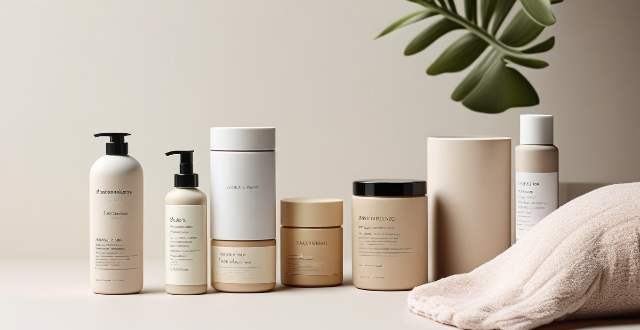
What are the best feminine hygiene products for sensitive skin ?
这篇文章为女性敏感肌肤提供了一些最佳的卫生产品选择,包括有机棉垫、无香精的卫生棉条、pH平衡的洗涤剂、天然油和透气内衣。这些建议旨在帮助女性在经期保持舒适和自信。
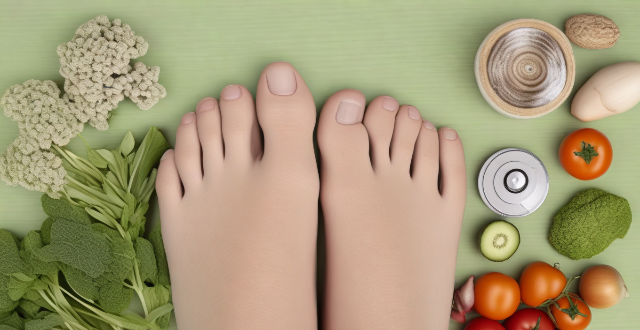
What are the consequences of neglecting foot hygiene ?
The text discusses the various consequences of neglecting foot hygiene, including physical health risks such as athlete's foot, toenail fungus, ingrown toenails, blisters and calluses, plantar warts, smelly feet (bromodosis), corns, bunions, gout, cellulitis, diabetic foot ulcers, deep vein thrombosis (DVT), and peripheral neuropathy. It also addresses mental health impacts like embarrassment and self-consciousness, anxiety, and stress. The text provides detailed descriptions and prevention tips for each issue, emphasizing the importance of good foot care habits to maintain overall foot health.

What are the best disinfection methods for public spaces during a pandemic ?
Best disinfection methods for public spaces during a pandemic include regular cleaning and disinfection, use of UV-C light disinfection, hand hygiene facilities, and air filtration systems. Regular cleaning and disinfection of high-touch surfaces helps to remove any potential contaminants and reduce the risk of transmission. UV-C light has been shown to effectively kill viruses and bacteria by damaging their DNA or RNA structure. Providing adequate hand hygiene facilities encourages individuals to maintain good hand hygiene practices. Installing air filtration systems with HEPA filters can help to reduce the concentration of airborne particles in public spaces.

What is the correct way to put on and take off PPE to avoid contamination ?
When putting on and taking off personal protective equipment (PPE), it is crucial to follow the correct steps to avoid contamination. Before donning any PPE, proper hand hygiene should be practiced by washing hands with soap and water for at least 20 seconds or using an alcohol-based hand sanitizer. After putting on a disposable gown or apron, gloves should be put on next, followed by a face shield or goggles, a mask, a hair covering if required, and shoe covers if necessary. When removing PPE, hand hygiene should be performed after each piece is removed, starting with the mask, followed by the face shield or goggles, gloves, gown or apron, and finally performing thorough hand hygiene again. By following these steps, the risk of contamination can be significantly reduced, protecting both the individual and others from potential exposure to hazardous materials or infectious agents.

What are the top 10 gifts for men under $50 ?
Finding the perfect gift for a man can be a daunting task, especially when you're on a budget. But fear not, as there are plenty of great options available that won't break the bank. Here are the top 10 gifts for men under $50: 1. **Portable Charger** - A portable charger is a must-have for any man on the go. It allows him to charge his phone or other devices while he's away from home or office. Look for one with a high capacity and multiple ports so he can charge multiple devices at once. 2. **Wireless Bluetooth Headphones** - Wireless Bluetooth headphones are a great gift for any music lover. They offer freedom from wires and allow him to listen to his favorite tunes without being tethered to his device. Look for ones with good sound quality and a comfortable fit. 3. **Multi-tool** - A multi-tool is a versatile tool that every man should have in his pocket. It combines several tools into one compact device, making it easy to carry around and use whenever needed. Look for one with a sturdy construction and a variety of useful tools. 4. **Beer Glass Set** - If he enjoys drinking beer, a set of beer glasses is a thoughtful gift idea. Look for ones made of durable materials like glass or stainless steel, and consider getting them personalized with his name or initials. 5. **Coffee Mug Warmer** - A coffee mug warmer is a practical gift for any coffee lover. It keeps his coffee warm while he works or reads, ensuring that he never has to drink lukewarm coffee again. Look for one with adjustable temperature settings and a sleek design that will fit in with his decor. 6. **Wallet** - A wallet is a classic gift that never goes out of style. Look for one made of high-quality leather or another durable material, and consider getting it personalized with his initials or name. 7. **Sunglasses** - Sunglasses are a stylish accessory that every man needs. Look for ones with polarized lenses to reduce glare and protect his eyes from harmful UV rays. Consider getting them in a color that matches his style preferences. 8. **Watch** - A watch is a timeless gift that every man appreciates. Look for one with a sleek design and a durable band made of leather or metal. Consider getting it engraved with a special message or date to make it even more meaningful. 9. **Book** - If he enjoys reading, a book is a thoughtful gift idea. Look for one by an author he likes or on a topic that interests him. Consider getting it signed by the author if possible to make it extra special. 10. **Scented Candle** - A scented candle is a relaxing gift that can help him unwind after a long day. Look for one with a soothing scent like lavender or chamomile, and consider getting it in a decorative jar that he can reuse once the candle is gone.

What are the best holiday gifts for family members ?
Finding the perfect holiday gifts for family members can be a daunting task. However, with some thoughtful consideration and creativity, you can find something special that will bring joy to your loved ones. Here are some ideas for the best holiday gifts for family members: ## For Parents - Personalized Photo Album: Collect photos of family memories and create a beautiful photo album. You can personalize it with their names or a special message. - Spa Day Gift Basket: Give your parents a day of relaxation with a spa gift basket. Include items like bath bombs, scented candles, and massage oils. - Customized Jewelry: Surprise your parents with customized jewelry pieces such as engraved bracelets or necklaces with their initials or birthstones. - Subscription Boxes: Choose from various subscription boxes such as gourmet food, books, or gardening supplies based on their interests. - Tech Gadgets: If your parents love technology, consider getting them the latest gadgets like smart speakers, fitness trackers, or e-readers. ## For Siblings - Gift Cards: Let your siblings choose their own presents by giving them gift cards to their favorite stores or online shops. - Board Games/Puzzles: Spend quality time together by playing board games or working on puzzles as a family during the holidays. - Sports Equipment: If your siblings are into sports, consider buying them new equipment or gear for their favorite activities. - DIY Craft Kits: Get creative and make DIY craft kits with your siblings. You can make things like friendship bracelets, painted rocks, or tie-dye shirts. - Experience Gifts: Give your siblings an experience they'll never forget, such as concert tickets, cooking classes, or outdoor adventures. ## For Grandparents - Customized Family Tree Plaque: Create a personalized family tree plaque featuring all the names of the grandchildren and great-grandchildren. - Digital Photo Frame: Keep grandparents connected to their loved ones by gifting them a digital photo frame preloaded with pictures of the family. - Comfy Blankets/Throws: Give your grandparents warmth and comfort with soft blankets or throws in their favorite colors and patterns. - Memory Book: Compile a memory book filled with stories, recipes, and photographs from throughout the years to preserve family history. - Health & Wellness Products: Show your grandparents you care about their health by gifting them products like air purifiers, massage pillows, or foot baths.

How often should protective clothing be replaced or cleaned ?
Protective clothing is essential in various industries and situations to ensure the safety and health of workers. It is crucial to maintain the effectiveness of protective clothing by replacing or cleaning it regularly. The frequency of replacement or cleaning depends on various factors such as the type of protective clothing, level of exposure, manufacturer's recommendations, and personal hygiene. Disposable protective clothing should be replaced after each use, while reusable protective clothing can be cleaned and reused multiple times. Always follow the manufacturer's recommendations and maintain personal hygiene by changing into clean protective clothing when necessary. By doing so, you can ensure the effectiveness of protective clothing in preventing contamination and protecting workers from hazardous substances.